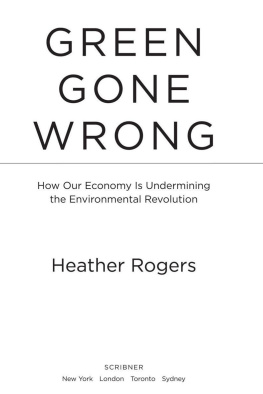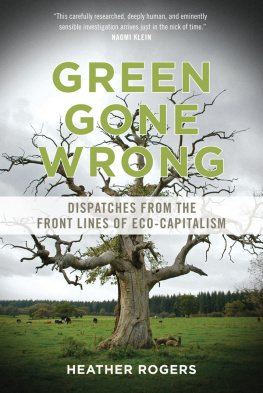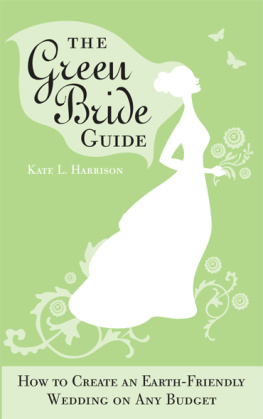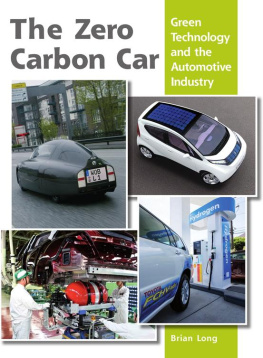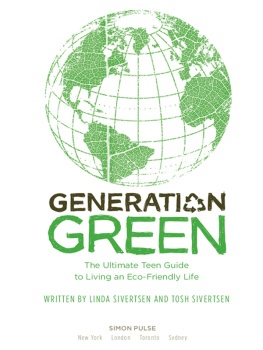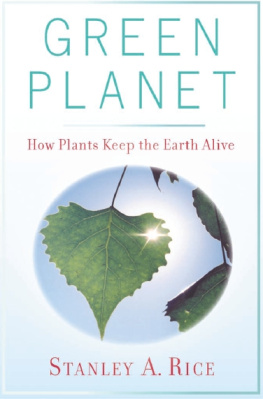
Also by Heather Rogers
Gone Tomorrow: The Hidden Life of Garbage
GREEN
GONE
WRONG
How Our Economy Is Undermining
the Environmental Revolution
Heather Rogers
SCRIBNER
New York London Toronto Sydney

SCRIBNER
A Division of Simon & Schuster, Inc.
1230 Avenue of the Americas
New York, NY 10020
www.SimonandSchuster.com
Copyright 2010 by Heather Rogers
All rights reserved, including the right to reproduce this book or portions thereof
in any form whatsoever. For information address Scribner Subsidiary Rights Department,
1230 Avenue of the Americas, New York, NY 10020.
First Scribner hardcover edition April 2010
scribner and design are registered trademarks of The Gale Group, Inc.,
used under license by Simon & Schuster, Inc., the publisher of this work.
For information about special discounts for bulk purchases,
please contact Simon & Schuster Special Sales at 1-866-506-1949
or business@simonandschuster.com.
The Simon & Schuster Speakers Bureau can bring authors to your live event.
For more information or to book an event contact the Simon & Schuster Speakers Bureau
at 1-866-248-3049 or visit our website at www.simonspeakers.com.
Manufactured in the United States of America
1 3 5 7 9 10 8 6 4 2
Library of Congress Control Number: 2009050618
ISBN 978-1-4165-7222-0
ISBN 978-1-4391-7647-4 (e-book)
To my family
Contents
GREEN GONE WRONG
INTRODUCTION
Green Dreams
The riots started in early 2007. The first country to erupt was Mexico. In just one year the price of corn, the key ingredient in tortillas, had shot up more than 80 percent. Suddenly, not just the poorest but also wage earners were unable to put food on the table. Tens of thousands of workers and peasants angrily took to the streets, marching down Mexico Citys main thoroughfare to the famous Zcalo, setting off what came to be called the tortilla riots. To quell the uproar, Mexican president Felipe Caldern was forced to announce a , including Egypt, Somalia, Colombia, Indonesia, Thailand, Vietnam, Cameroon, and Haiti. The sometimes deadly protests were set in motion by a global food crisis triggered in part by the diversion of food crops to refineries making plant-based transportation fuels known as biofuels. Considered ecologically sustainable, biofuels can substitute for fossil fuels, thereby cutting emissions of carbon dioxide, a major contributor to global warming. However, todays eco-friendly fuel is made from edible crops such as corn, soybeans, sugarcane, and palm oil (a vegetable oil); thanks to subsidies and the high price of oil, at that time selling crops for biofuels offered a bigger return than selling them for food, so growers and agribusiness followed the money.
By the spring of 2008 , which buyers would unwittingly ingest.
As the terrible social impacts of crop-based biofuels grew more acute, questions also began arising about their supposed environmental benefits. People such as David Pimentel, professor of ecology and agriculture at Cornell University, claimed it required more energy to grow and refine corn ethanol than the alt-fuel could provide. According to assessments such as Pimentels, in the journal Science stated that more carbon dioxide was being released into the atmosphere from the production of some biofuels than if people continued filling their tanks with gasoline and diesel.
That same year , trailing only China and the United States. Much of Indonesias spike in CO2 came from clear-cutting and burning trees to make room for crops that could be refined into biofuels. Imagine millions of acres of dense rain forest teeming with the worlds most diverse flora and fauna. A crew armed with chain saws and bulldozers forges a narrow path through the trees. The workers begin to rip away and flatten the forest as wildlife, including endangered species such as orangutans, flee for their lives. A bulldozer shoves innumerable splintered trees into tangled piles that stretch for miles, and crews set them alight. Ferocious fires blast through what was once a dynamic web of life, leaving behind a carbon dioxidefilled haze and a silent, charred wasteland. After the forest has been erased its almost impossible to imagine what was once there.
Such outcomesviolent social upheaval, and the further shattering of vital ecosystemsreveal some of the dangers of taking up solutions with out serious critical assessment. So how do we work toward solving the profound ecological problems we face in ways that dont make matters worse?
MORE IS LESS
From todays vantage point, 2006 was a big year. Thats when global warming was finally acknowledged by the last, and very powerful, holdouts: U.S. government and industry. The city of New Orleans still lay smashed from the previous years Hurricane Katrinaa storm that was in creating global warming.
Newfound acceptance of the dangers of unchecked greenhouse gas emissions set off a barrage of coverage in magazines and newspapers, on talk shows and websites. Major rock groups such as the Rolling Stones, KT Tunstall, and the Dave Matthews Band started planting trees to cancel out the CO2 released from their tours and the production of their albums. Hillary Clinton, Leonardo DiCaprio, and the pop entrepreneur Richard Branson began proselytizing about the need to take action. Even George W. Bush, the notorious global warming denier, uttered the words climate change in his .
As of 2007 global warming had become a fact of life, and growing numbers of people were looking for solutions. A news broadcast from that year, a midday edition of CNN International, typified the emerging state of affairs. The lead story featured an intrepid but well-coiffed reporter exploring catastrophic ice loss at the north pole. Visually incongruous with the blank, undulating landscape, the perky newswoman explained that temperatures were climbing faster in arctic regions than elsewhere on the planet, and at a more rapid clip than previously thought. The latest projections, she reported, said summer ice may be extinct as soon as 2040, taking several animal species with it. The follow-up segment on CNN that day was what Wal-Martthe biggest retailer on the planetwas doing to address ecological degradation. In addition to reducing energy consumption in its stores and using more fuel-efficient trucks, the company committed to push its 180 million customers to buy more commodities it deemed helpful to the environment. As this example suggests, the dire and depressing problem of climate crisis is increasingly being answered by the next phase of environmentalism: the buying and selling of ecologically responsible products.
Not so long ago wheat germ, solar panels, and electric minicars were the purview of activists, hippies, and renegade engineers. Recently, however, a rush of fashionable responses to ecological meltdown has crowded out the previous generations reactionoften characterized as strident and blaming. The new green wave, typified by the phrase lazy environmentalism, is geared toward the masses that arent willing to sacrifice. This brand of armchair activism actualizes itself most fully in the realm of consumer goods; through buying the right products we can usher our economic system into the environmental age. The new naturalists dont reject the free market for its reckless degradation of the air, water, and soil as their forebears did. Instead they aspire to turn the forces of economic growth and development away from despoliation and toward regeneration. Couched in optimism that springs from avoiding conflict, the current approach asks why taking care of ecosystems must entail a Spartan doing without when saving the planet can be fun and relatively easy.
Next page
